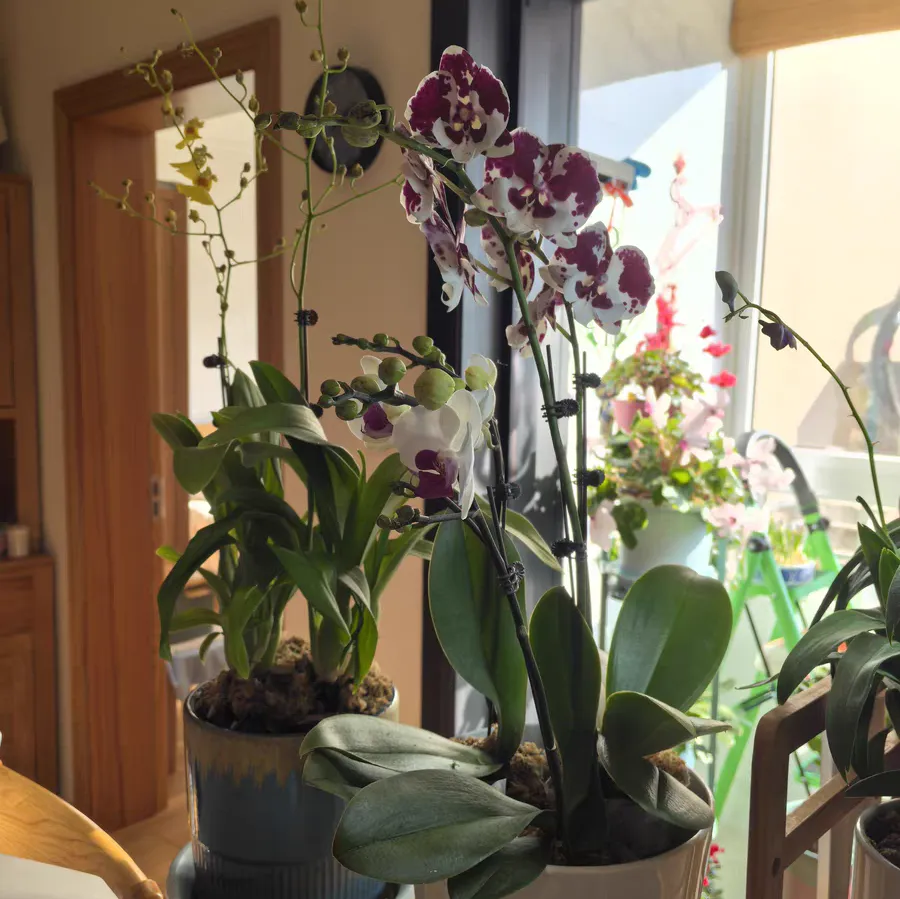As highly ornamental flowers, the choice of fertilizers during the cultivation process of Phalaenopsis orchids is of great significance. Why are organic nutrient fertilizers not suitable for Phalaenopsis orchids? And what symptoms will occur when they lack fertilizers? Having an in-depth understanding of these issues can help us cultivate Phalaenopsis orchids better.
Phalaenopsis orchids have specific requirements for fertilizers, and organic nutrient fertilizers may not meet their growth needs in some aspects. The following is a detailed explanation of this viewpoint:
Complex composition, likely to cause excessive nutrition: Organic nutrient fertilizers usually contain a variety of nutrient elements. After these elements are decomposed by microorganisms in the soil, they will be gradually released to the plants. However, the growth of Phalaenopsis orchids does not require an overly rich nutritional environment. In particular, the acidic substances that may be produced after the decomposition of certain organic substances are not beneficial to the growth of the roots of Phalaenopsis orchids. Excessive nutrient elements may also lead to excessive nutrition, affecting the normal growth of Phalaenopsis orchids.
Improper fertilization is likely to burn the roots: It is rather difficult to control the timing and concentration of fertilization with organic nutrient fertilizers. If the fertilization is improper, such as using a too high concentration or applying fertilizer at the wrong time, it may burn the roots of Phalaenopsis orchids, thereby affecting their normal growth. The roots of Phalaenopsis orchids are relatively sensitive, and once damaged, they are difficult to recover.
Difficult to meet the needs of precise fertilization: Phalaenopsis orchids have different requirements for nutrient elements at different growth stages. For example, they need more nitrogen fertilizers during the growth period, and more phosphorus and potassium fertilizers during the flowering period. Organic nutrient fertilizers are difficult to precisely meet these needs, while chemical fertilizers can better meet the nutritional needs of Phalaenopsis orchids at different growth stages by adjusting the formula and concentration.
When Phalaenopsis orchids lack fertilizers, a series of obvious symptoms will occur, and these symptoms can serve as a basis for us to determine whether they are lacking fertilizers. The following are some common symptoms of fertilizer deficiency:
The leaves lose their greenness: Nitrogen is one of the essential nutrient elements for plant growth, and it is crucial for the growth and maintenance of the green color of the leaves. When Phalaenopsis orchids lack nitrogen, the leaves will gradually lose their greenness and become yellow and weak. This is one of the most intuitive manifestations of fertilizer deficiency in Phalaenopsis orchids.
The plant grows slowly: Phosphorus and potassium elements are also necessary for the growth of Phalaenopsis orchids. Phosphorus can promote the development of roots and the blooming of flowers, while potassium helps to enhance the stress resistance and overall growth potential of plants. When Phalaenopsis orchids lack these two elements, not only will the leaves turn yellow, but the growth of the entire plant will also slow down or even stop.
The leaves curl and develop spots: In addition to the main nutrient elements such as nitrogen, phosphorus, and potassium, Phalaenopsis orchids also need some trace elements to maintain normal growth and development. Although the demand for these trace elements is not large, once they are lacking, problems such as leaf curling and the appearance of spots will occur. For example, iron deficiency will cause the leaves to turn yellow, rot, and wither; the deficiency of calcium, magnesium, manganese, and zinc will lead to problems such as sparse leaves and a lack of green color.
Due to its own physiological characteristics, Phalaenopsis orchids are not suitable for using organic nutrient fertilizers. During the cultivation process, only by promptly identifying the symptoms of fertilizer deficiency and taking the correct fertilization measures can Phalaenopsis orchids thrive.
Why can't Phalaenopsis orchids be fertilized with organic nutrient fertilizers?

Share with
Tagged in :



Leave a Reply